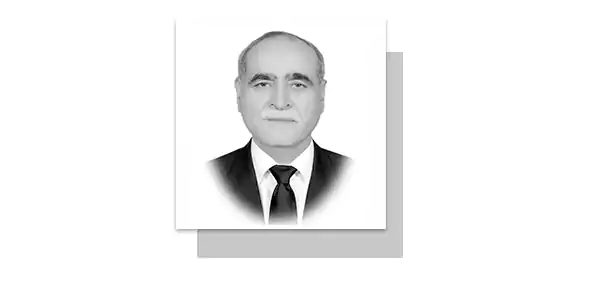THE current flare-up between Iran and Israel, including the unprecedented direct exchange of hostilities, may seem like a localized Middle Eastern issue, but its ripples are unsettling the strategic equilibrium in South Asia.
At the heart of this shifting geopolitical landscape lies the deepening partnership between India and Israel—a covert yet consequential alliance that poses challenges not only to regional peace but also to the cohesion of the Muslim world and Pakistan’s national security.
India, while often portraying itself as a non-aligned power, has, in practice, evolved into a close ally and military-intelligence collaborator of Israel.
This proximity raises critical concerns, particularly in the wake of Israeli aggression against Iranian diplomatic premises and India’s conspicuous silence on the matter.
Hindutva and Zionism: An Unspoken Ideological Alliance: The India-Israel partnership transcends diplomacy—it is a fusion of two ideological extremes.
Under Prime Minister Narendra Modi, the BJP pursues an aggressive Hindutva agenda, marginalizing Muslims, Christians, and other minorities.
Israel, grounded in Zionism, has systematically oppressed and displaced Palestinians, bordering on apartheid and ethnic cleansing.
This ideological kinship has enabled robust military and technological cooperation.
Israel supplies India with drones, missile systems, surveillance tools, and cyberwarfare capabilities.
Significantly, Israeli-made drones and advisors have been deployed in India-occupied Kashmir, reflecting New Delhi’s willingness to adopt Israeli tactics in its regional posturing.
The Iran Attack: India’s Silent Endorsement?
In April 2024, an Israeli airstrike on Iran’s consulate in Damascus prompted Tehran’s direct retaliation, raising alarms about a broader regional conflict.
India’s reaction was revealing: no condemnation of Israel’s breach of international law, and a tacit alignment with Tel Aviv’s “self-defense” narrative.
Indian media and think tanks largely downplayed the Israeli attack, casting Iran as the provocateur.
This deliberate silence signals a strategic preference—possibly even collaboration.
Intelligence reports suggest deepening cyber and surveillance coordination between Indian and Israeli agencies, targeting perceived common threats such as Iran, Pakistan, and Turkey.
Pakistan’s Unambiguous Stance: Condemning Aggression, Upholding UnityIn stark contrast to India, Pakistan adopted a clear and principled stance.
Its top civilian and military leadership unequivocally condemned Israel’s actions and expressed solidarity with Iran and the broader Muslim Ummah.
President Asif Ali Zardari stated: “Pakistan strongly condemns Israel’s attack on the Iranian consulate.
This is a blatant violation of international law and a grave threat to regional stability.
We stand in unshakable solidarity with Iran and our Muslim brothers worldwide.
” Prime Minister Shehbaz Sharif remarked after a high-level security meeting: “This Israeli aggression is not just against Iran but the collective dignity of the Muslim Ummah.
Pakistan desires peace, but Israel’s actions reflect provocation and disregard for international norms.
” Former Prime Minister Nawaz Sharif asserted: “This is a moment for unity in the Muslim world.
The Israeli assault on Iran is naked terrorism.
India’s silence is complicity.”
Foreign Minister Ishaq Dar, at an emergency OIC meeting, urged: “We call upon the OIC to move beyond rhetoric.
Israel must be held accountable under international law.
The Muslim world must adopt a unified and actionable stance.
” Military spokesperson Lt.Gen.Ahmed Sharif Chaudhry emphasized: “Our armed forces are vigilant not just for Pakistan’s borders but for global peace.
Israel’s recent actions violate international conventions and threaten Muslim unity.
We denounce such belligerence unequivocally.”
India’s Silence: Complicity or Strategic Backing?
India’s silence amid Israeli aggression reveals more than diplomatic restraint—it indicates implicit support.
Prime Minister Modi has called Netanyahu a “dear friend” and has never clearly opposed Israeli violence against Palestinians.
Indian think tanks echoed Israeli narratives, portraying Iran’s retaliation as destabilizing.
This alignment suggests India is not a neutral observer but an active participant in a geopolitical axis aimed at suppressing Muslim resurgence.
The Responsibility of the Muslim World: Exposing the Axis: The Israel-Iran confrontation is not an isolated event—it is part of a broader Israeli strategy, now amplified by its alliance with India.
This coalition poses serious long-term threats to nations like Pakistan, Turkey, Malaysia, and Islamic voices across Africa and Southeast Asia.
While some OIC statements expressed concern, many Muslim nations continue to engage India economically and diplomatically, ignoring its growing entanglement with Israel.
This dangerous ambivalence must end.
The Muslim world must consistently expose the India-Israel axis as a calculated strategic and ideological alliance undermining Muslim unity.
Conclusion: Israel’s Aggression, India’s Partnership, and Pakistan’s Strategic Doctrine
In light of these developments, Pakistan must adopt a doctrine based on four key pillars:
1.Strengthening Islamic Solidarity: Deepen strategic ties with Iran, Turkey, Saudi Arabia, Qatar, Malaysia, and Indonesia to foster a united Muslim front.
2.Global Exposure of the Indo-Israeli Nexus: Lead diplomatic campaigns to highlight the global implications of the India-Israel alliance, particularly its threat to peace and Muslim sovereignty.
3.Youth and Public Awareness: Educate the public, especially youth, about the ideological roots of this alliance through media, curricula, and digital platforms.
4.Legal and Diplomatic Countermeasures: Pursue legal avenues at the UN and the International Court of Justice against Israeli violations, and advocate for unified action.
Pakistan’s narrative remains firm: it is a voice of moral clarity, a defender of international law, and a guardian of Muslim dignity.
In an era where alliances often compromise justice, Pakistan’s stance offers hope—not only for Iran and Palestine but for the dignity of the entire Ummah.
—The writer is a Supreme Court lawyer and former member & Chairman Standing Committee of Azad Jammu and Kashmir Council.Islamabad(khaliqwasi786@gmail.com)


















